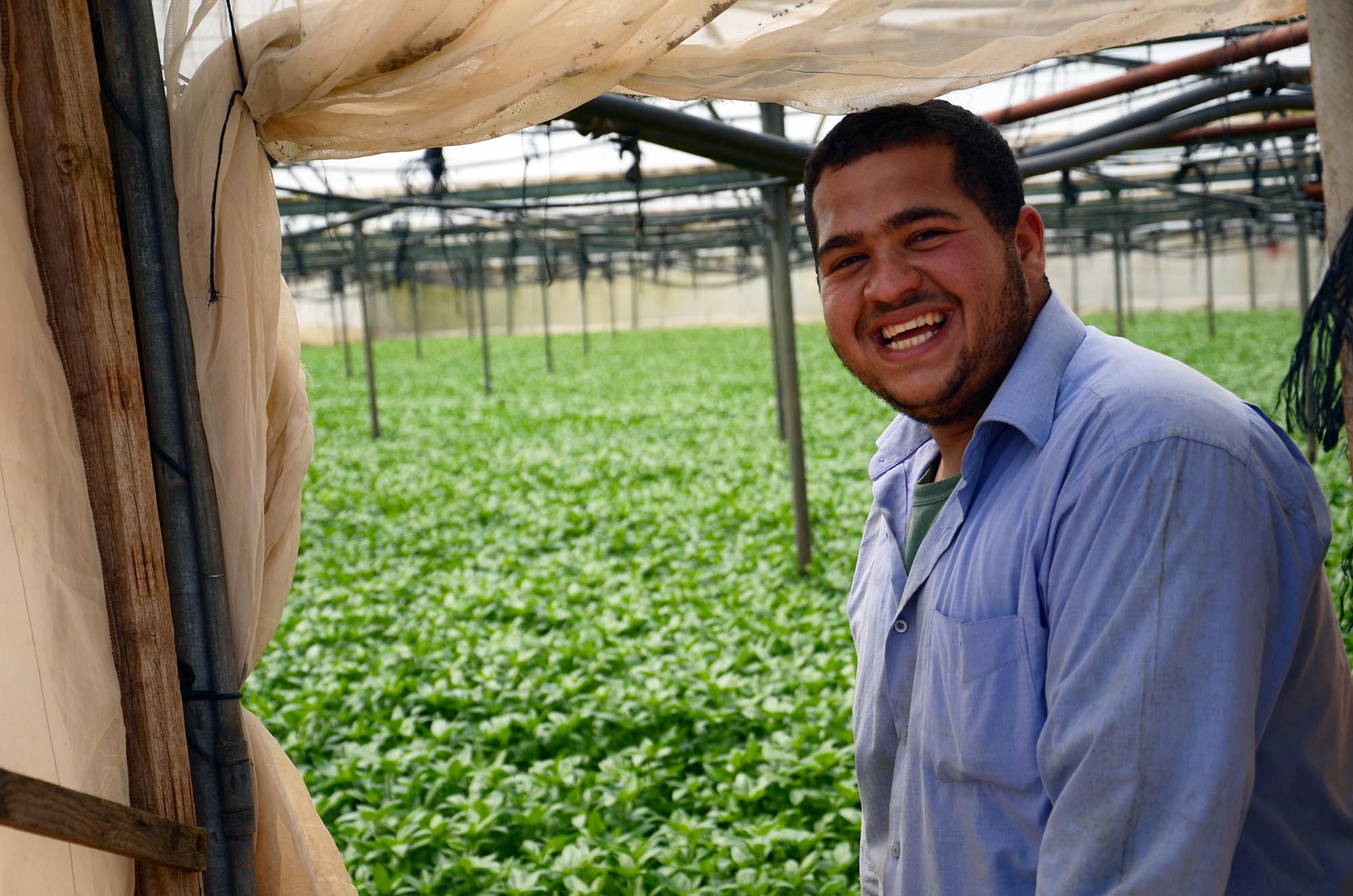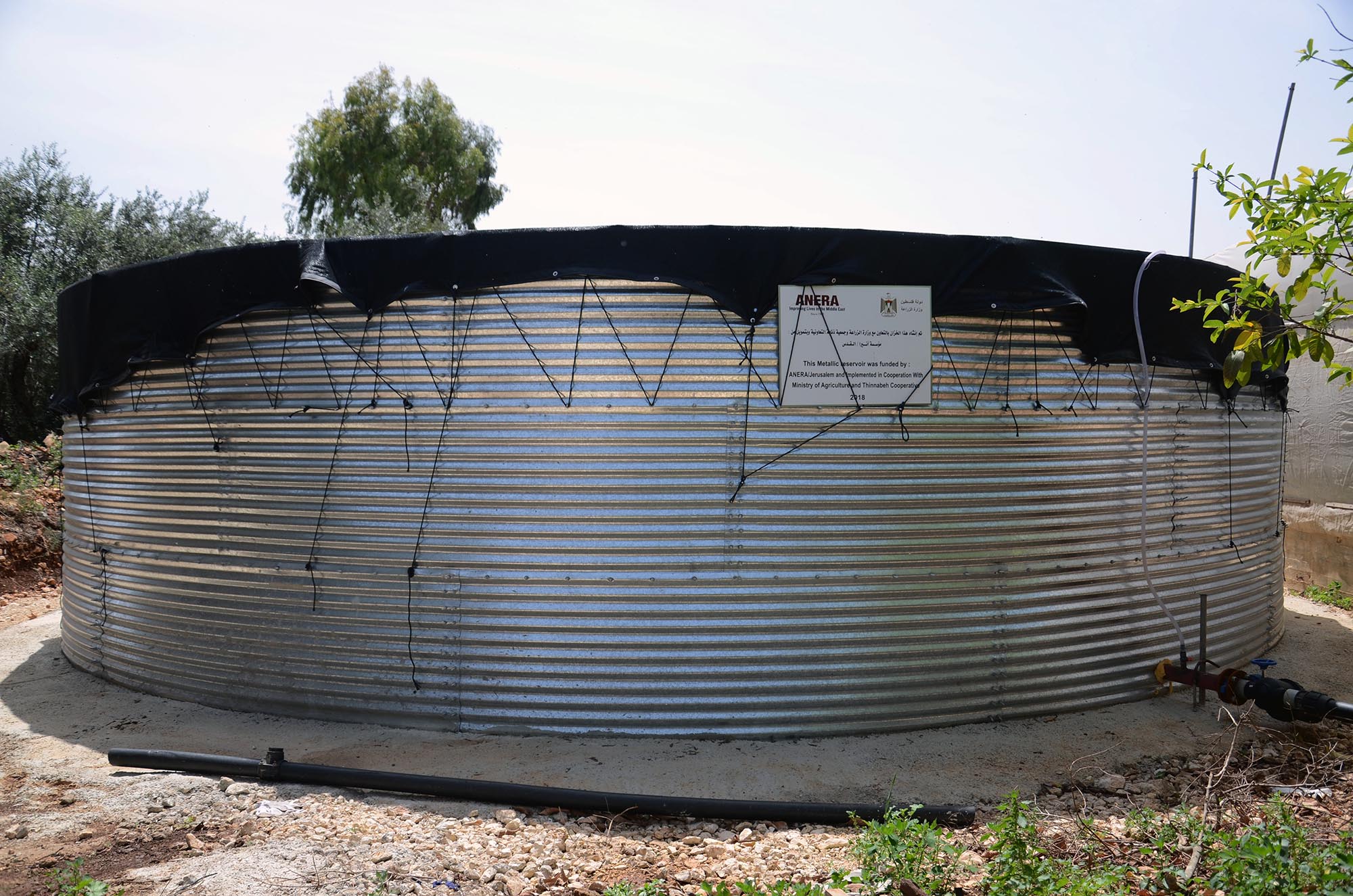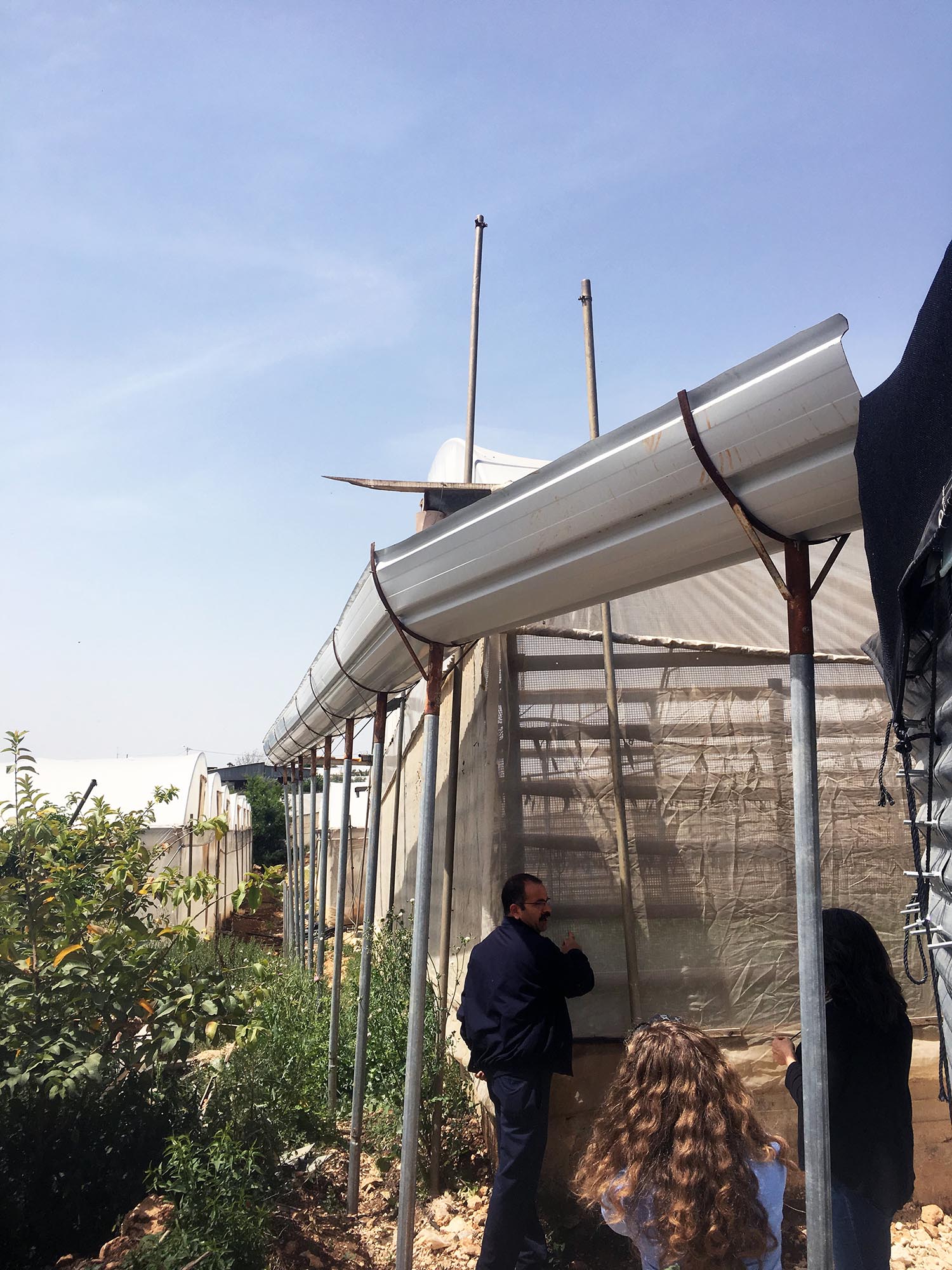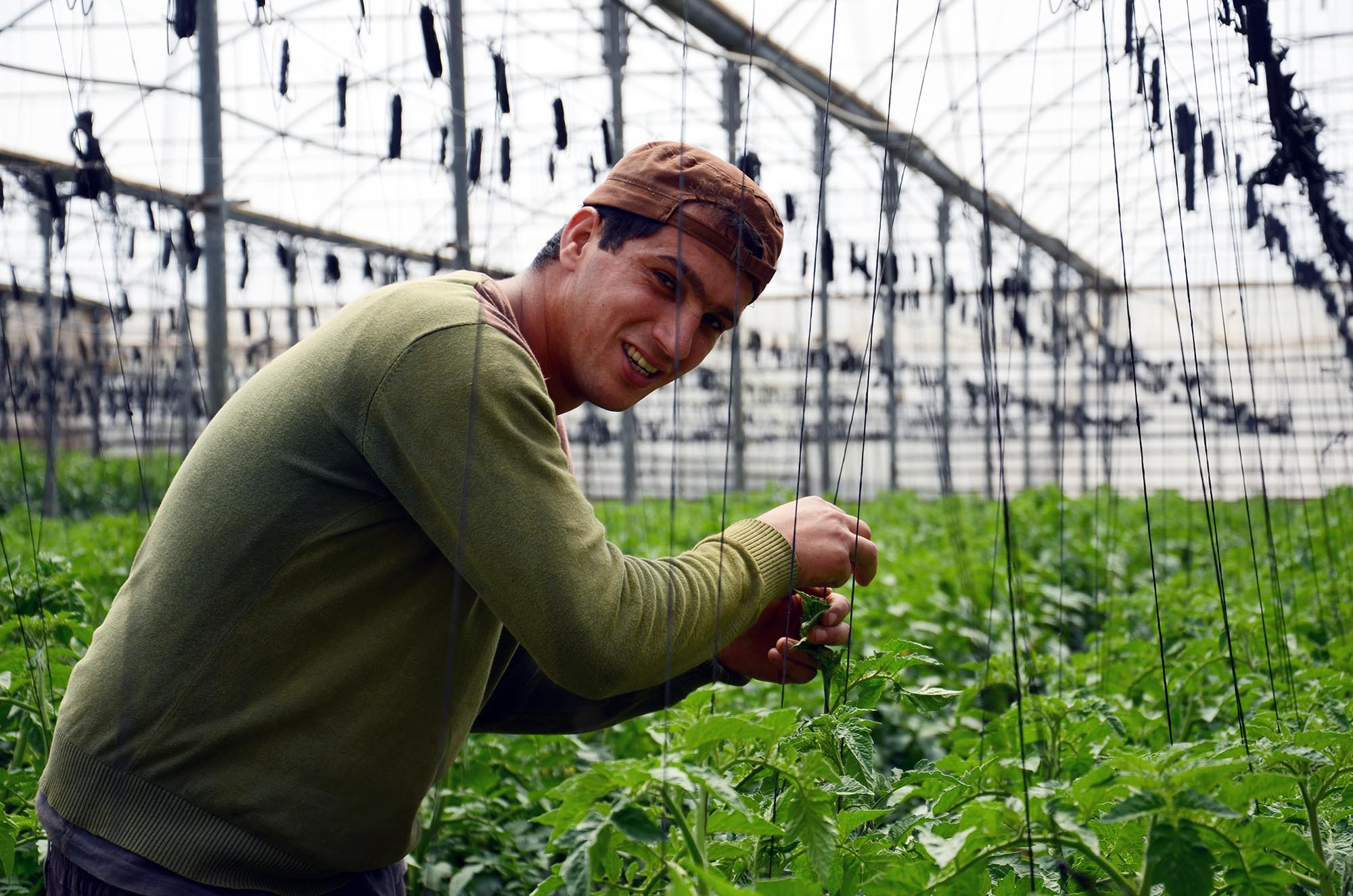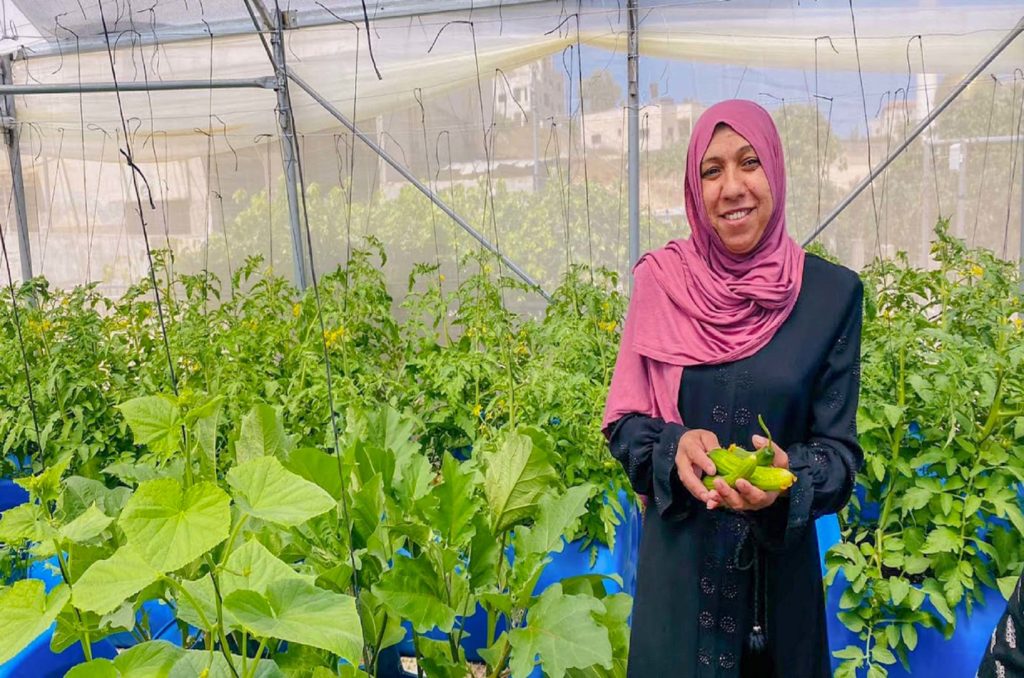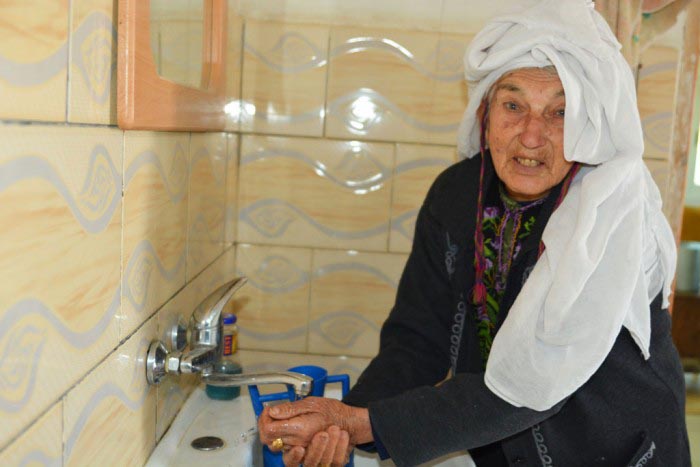May, 2018
"This project saves us time, money and effort and gives us peace of mind," says Ahmad. "We're producing more and producing better... Harvest time, for me, is the best part of being a farmer. When I literally hold the fruits of my hard labor in my own hands."
Every morning, young Ahmad visits his family’s land and checks on the greenhouses and tends to the crops. Around noon, he heads to the university where he is currently earning his bachelor’s in accounting. It would appear to some that Ahmad leads a double-life as both a farmer and an accounting student, but to Ahmad he is simply pursuing what he loves the most, with a higher goal in mind.
"I aspire to integrate the knowledge I've gained at university into our greenhouse business and run it with a good head on my shoulders," says Ahmad with confidence.
Ahmad and his five other siblings mainly live off the land his father Ismail Odeh sharecrops with his brother. Their land is located in Tulkarem, West Bank in the large agricultural village of Dhinnaba, famous for its greenhouses that produce mallow, cucumber and tomato.
In February of this year the two brothers, along with five other farmers in their village, crossed paths with Anera which helped provide them with a cost-efficient solution to a problem they were all facing: water scarcity. Water scarcity has been burdening farmers across the West Bank for years and because of this, Anera has gained extensive experience getting the most out of limited rainwater resources.
Anera installed six, 60,000-gallon metallic reservoirs which were erected above ground level. These Anera-funded reservoirs harvest the rainwater that falls on greenhouses' rooftops to irrigate crops, especially in the summer when the need for water is paramount.
"The reservoirs primarily harvest water between November and March continually as they simultaneously pump out water to irrigate the plants inside the greenhouses during the rainy season," explains Anera's agricultural expert Naser Qadous. "They can entirely rely on the reservoirs during those months."
Farmers in Dhinnaba mainly depend on three privatized groundwater wells for irrigation. This means that farmers must pay a high price for their share of water and wait their turn for the water to reach their farms, maybe once or twice a week if they are lucky.
Due to the limited capacity of these privatized groundwater wells, there isn't enough water available for everyone. The quantity varies and arrives erratically. It could arrive at noon when the sun is harshest, or in the middle of the night, forcing farmers to stay up waiting for the chance to water their plants.
Because most farmers don't have a special place to store the extra ground water they purchase, water loss often occurs. That is why many farmers opt to use up whatever amount of water they get when they get it. Sometimes they end up over-watering their crops and damaging the roots as a result.
Now Ahmad, his family and the six other farmers in his village use the stored reservoir water during summer. They also make use of their new reservoirs to store their purchased water. Naser elaborates, "When their share of water comes through from the groundwater wells, be it during the day or night, farmers can conveniently collect that water inside the same reservoirs we've installed for them and use it to the last drop, efficiently and wisely."
The galvanized metallic structures lined with balloon-shaped polyethylene sheets are expected to serve the farmers for at least 20 years without needing serious maintenance.
"This project saves us time, money and effort and gives us peace of mind," says Ahmad. "We're producing more and producing better... Harvest time, for me, is the best part of being a farmer. When I literally hold the fruits of my hard labor in my own hands."

